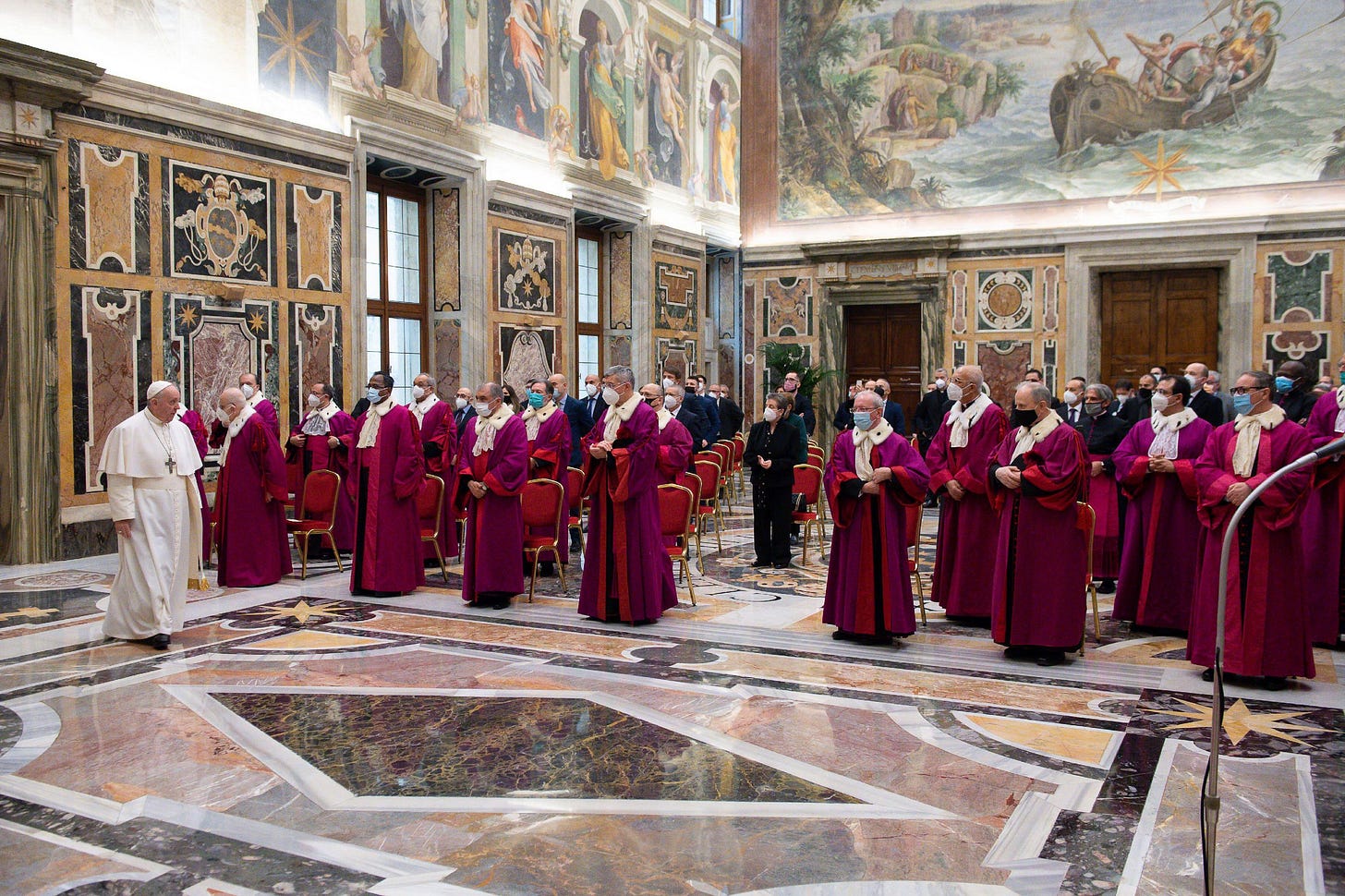
Pope Francis on Friday set up a study group - a pontifical commission, formally - to study the implementation of his 2015 reforms to the Church’s process for investigating the validity of marriages — the tribunal proce…

Pope Francis on Friday set up a study group - a pontifical commission, formally - to study the implementation of his 2015 reforms to the Church’s process for investigating the validity of marriages — the tribunal proce…